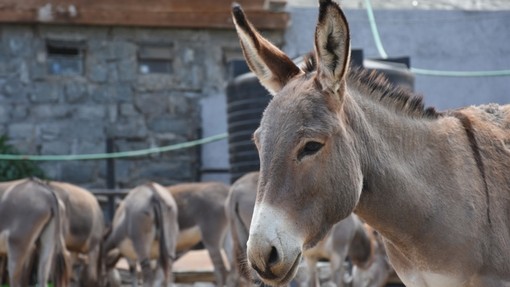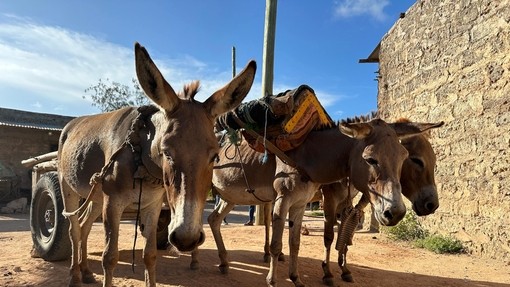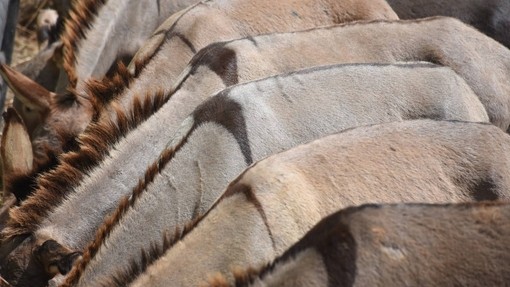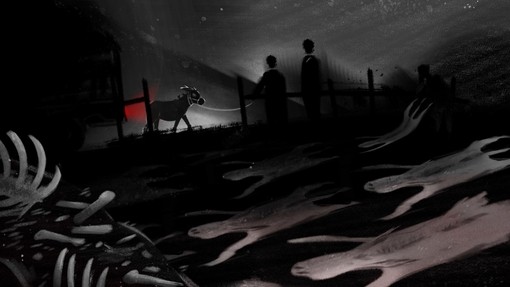
The skin trade in the spotlight
The maritime industry is crucial in identifying and preventing the movement of shipments of illegal wildlife products. This course will equip operators with the insights and knowledge they need to help combat the illegal wildlife trade, including the illicit trade in donkey hides.
The course, “Illegal Wildlife Trade - Introduction to Counter Wildlife Trafficking in Maritime Supply Chains”, is a self-paced, virtual course which covers key concepts of illegal wildlife trade, concealment methods, red flag indicators and the possible measures that can be taken in the maritime supply chain to help stop the trade.
As a leading voice in the campaign to stop the cruel and inhumane donkey skin trade, we have welcomed the inclusion of the trafficking of donkey hides in the new course. The course also recognises the devastating impacts of the trade, in what we describe as a global animal welfare disaster, which threatens biosecurity and has proven links with wildlife crime.
Ending the donkey skin trade
Action against the skin trade has gathered momentum since February this year when African Heads of State endorsed a continent-wide moratorium on the slaughter of donkeys for their skins at the 37th African Union Summit.
Every year, at least 5.9 million donkeys are killed for their skins, which are exported across the world and used to make ejiao, a traditional Chinese medicine. The AU agreement on a moratorium was made in recognition of animal welfare concerns and the vital role donkeys play in supporting communities and economies across Africa.
There has been a huge increase in recent years in the detection of donkey skins being smuggled alongside other banned items, including wildlife products, hidden in shipping consignments across the world.
Our joint research with the University of Oxford’s Saïd Business School and Wildlife Conservation Research Unit (WildCRU) uncovered significant evidence linking the movement of donkey skins with illegal wildlife trafficking and organised crime. The report identified a vast online network of organised criminals offering donkey skins for sale, often alongside illegal wildlife products including rhino horns, pangolin scales, elephant ivory and tiger hides.
By including the donkey skin trade in its course, the IMO is recognising the scale of the threat posed by the trade to both donkeys and wildlife, and the role the maritime industry can play in combatting it.
It is hoped by adopting more robust policies and detection measures the maritime industry can help in the fight against illegal goods being transported by sea thereby disrupting and ultimately stopping illegal trafficking and other illicit trade in its tracks.
The IMO course is open access and those interested can enrol through their e-learning platform. Everyone who completes the course will receive a certificate from the IMO, thereby enabling companies and individual maritime staff to demonstrate their commitment to ending the illegal wildlife trade, while gaining an industry recognised qualification.
Janneke Merkx, Campaign Manager at The Donkey Sanctuary, said: “The global trade in donkey skins is having a devastating impact on these valued and important animals, as well as vulnerable species targeted in criminal trafficking.
“We welcome each and every step taken by the maritime industry to join our fight against the inhumane trade in donkey skins and hope that others will continue to join us on that journey.”
Share this page
Tags
- News





